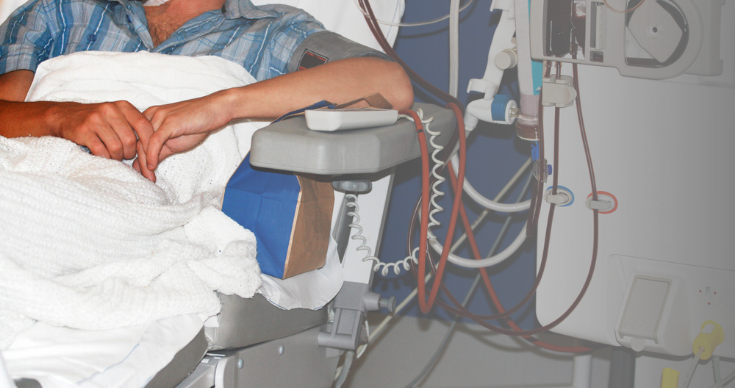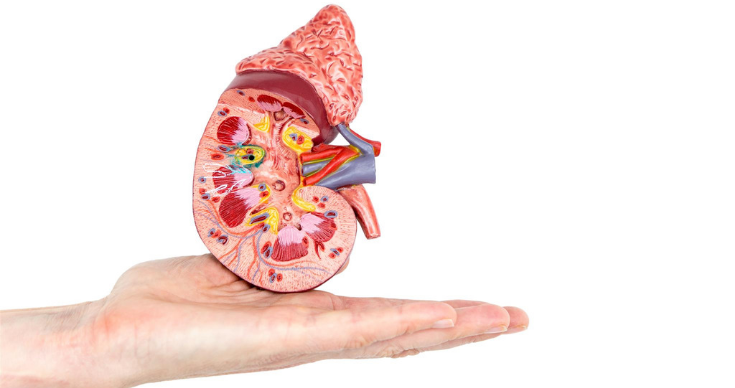How To Prepare For Dialysis – A Patient’s Guide
Kidneys perform the function of purifying the blood, remove excess water and toxins from the body. Dialysis is a procedure that works like artificial kidneys and purifies the blood with the help of advanced machinery. It is done for the people whose kidneys cannot perform its functions anymore.
There are several types of dialysis and it is more common than you might be assuming. However, when a patient is first told that they will need to undergo dialysis, they get scared. Today, we will offer some useful tips regarding how to prepare yourself for dialysis.
Usually, your Dialysis will be done 1 to 4 times a week, and each session takes around 3 to 4 hours. You need to keep the access site clean by washing it before dialysis. Keep your face and access site visible for the staff to keep an eye on, all the time during the process. Dialysis is not generally painful, so while the process goes on, you can be relaxed. You can either read a book/newspaper, watch TV, listen to music or even sleep. Since the machine filters, the blood outside the body and then it is injected back in the body, you might feel cold during the process. So, you can ask for blankets to help you stay warm.
There are some minute complications and side effects that are associated with dialysis. Some occur near the site of injection, these include:
- Bleeding
- Swelling
- Redness
- Tenderness
- Muscle pain
Other side effects are
- Dizziness
- Nausea
- Chest pain
- Breathlessness
- Cramps
- High/low blood pressure
After the dialysis, frequent urination and bloating are quite common. You can also feel very tired and can have body aches. You may need to take rest for the rest of the day as well.
Dialysis can be done at a hospital, doctor’s clinic, pathology center or even at home. However, you and your family members need to have the proper training for the same. Also, it is best to get a doctor or medical staff to oversee the procedure from time to time.
It is quite crucial to ensure that you do not miss your dialysis schedule. However, if you are sick or traveling, you cannot help missing 1 or 2 dialysis sessions. So, in case this happens in your case, don’t forget to inform about the same in advance to your doctor or the team and make arrangements accordingly.
ILS Hospitals offer dialysis facility for the patients suffering from renal damage.
A Brief Introduction To Advanced Renal Transplant
Our body has been designed to perform every crucial function quite effectively. Yet, it is quite normal to rely on medical treatment when our body becomes weak due to some disease or accidental injury. However, only medication cannot always fix every condition on its own. Kidney failure is one such condition that many times require extensive medical attention namely the renal transplant. Let’s understand more about renal failure and advanced renal transplant, as explained by our nephrologists.
Kidneys are a pair of a bean-shaped organ that filters the blood and flushes out the toxins in the form of urine. The kidneys are comprised of tiny filtration units which work so efficiently that even one healthy kidney can perform the overall function. Thus, it becomes quite tricky to detect a renal failure in its early stages. Nephrologists term Renal failure as the condition in which the kidneys lose more than 90% of their ability to function anymore. Renal failure can either happen due to chronic kidney disease or acute kidney diseases. Additionally, factors like chronic high blood pressure, diabetes can also uplift the chances of kidney diseases significantly.
Either way, it requires either regular dialysis or a renal transplant to make long term survival. Kidney transplant is a more preferable solution in comparison to a lifetime of dialysis ahead. Renal transplant is a surgical procedure to transfer a healthy kidney from a donor to a patient whose kidneys no longer performs. This functioning kidney can either be collected from a dead person (cadaveric donor) or from a living healthy donor. Usually, one healthy kidney is adequate to replace 2 failed kidneys. But it is not as simple as it may sound.
Renal transplant is an advanced treatment procedure that requires many prerequisites for it to become successful. Just like blood transfusion, there should be adequate compatibility between the donor and the recipient for renal transplant to work. Moreover, getting a donor often is time-consuming (between a few months to a few years) in case a compatible donor cannot be found on time. In such a scenario, the recipient will have to register their name on a kidney transplanting list, which determines several factors before one can get their scope of renal transplant.
This modern medical marvel has its downside as well. Mild infection, blood clot, and bleeding might arise after renal transplant, but, these can be treated well with mild medication. The main concern related to a renal transplant is organ rejection, in which the body of the recipient rejects the organ. But in some cases, this possibility can be minimized with the help of taking immunosuppressants. So, it is very crucial to carry out this surgery in an advanced hospital under expert nephrologists.
Renal transplant is an advanced medical procedure to ensure the patient with renal failure can lead a healthy life ahead. Through some risks are associated with it, the increasing numbers of success stories are inspiring people to consider this treatment for themselves or their loved ones. For more information regarding kidney diseases, renal failure, and renal transplant, consult with the highly experienced nephrologists at ILS Hospitals.
Super Tips To Keep Your Kidney Healthy
Kidneys are a pair of organs that filter the blood and removes any waste and toxins from the body. However, as even ‘one healthy kidney’ can function pretty well, detection of kidney disease becomes quite tricky. Here we bring some super tips, as per nephrologists, to keep your kidney healthy and disease-free.
1. Drink Plenty Of Water
Staying hydrated is always beneficial for everyone. This is particularity true to keep the kidneys healthy and active. So, try to include at least 1.5 to 2 liters of water each day. It helps the urinary system to remove toxins from the body as well reduce the chances of developing kidney stones and other common complications of kidneys.
2. Keep Diabetes In Leash
Diabetes and kidney complications are associated with one another. Thus, it is crucial to keep your diabetes in leash in order to minimize the risks of kidney illnesses in the future.
3. Keep Body Weight In Check
Being overweight brings many complications along with it. Kidney complication is simply one of them. So, staying in shape is a wise way to keep kidney complications at bay. Maintain a healthy body weight by doing physical exercise regularly.
4. Eat Healthy and Wisely
Eating a healthy diet is highly helpful for a healthy kidney. Reduce your salt intake and highly processed food. Instead, include fresh fruits and vegetables. Moreover, in case you are dealing with any kind of discomfort regarding kidney stone or gallstones, it is best to avoid the seeds of the veggies and fruits as much as possible.
5. Monitor Your Blood Pressure Profile
The normal blood pressure ranges from 120 to 80 mmHg. A persistently high blood pressure brings many challenges to kidney’s overall health and functionality. Keeping a tab on your blood pressure level is crucial from time to time.
6. Quit Smoking
Smoking does no good for overall health. Smoking hampers the blood flow to the kidney. Needless to say, when the kidney does not get an adequate blood supply, it affects their ability to function properly. Stop smoking reduces the chances of kidney cancer by about 50 percent.
You are also requested to avail the renal checkup to ensure complete care of your kidneys. Renal checkup packages are available at ILS Hospitals. You are particularity recommended towards the same, in case you have diabetes, obesity, hypertension, or have an immediate family member who also has any kidney complication.
How Dialysis Helps People Live a Normal Life?
Some say getting shots for diabetes each day is quite painful. But this pain is less as compared to undergoing a dialysis. Dialysis is one of the medical emergencies that needs a well-qualified doctor and well equipped hospital to carry out.
So, what is dialysis and why it is carried out?
Normally, kidneys of a healthy person filter about 1500 liters of blood in a day. If the kidneys do not function properly, then the waste builds up in the bloodstream. After a time period, it can lead the individuals to coma and eventually death. This medical emergency calls for the need of dialysis which is an artificial alternative to serve this function.
Dialysis is done about 1-3 times in a week, depending upon the type of dialysis and the condition of the patient. Each session goes on for about 3 to 4 hours. Dialysis averts the level of waste product from reaching the level when it will cause some serious damage to the body. Moreover, it removes the toxic stuffs from the bloodstream and maintains the level of water and minerals in the body.

Can dialysis be considered as a substitute for kidneys?
Apart from acting as a filter, kidneys also secrete chemicals that help in metabolism. Dialysis helps the person suffering from damaged kidneys. Apart from this treatment and medication, the patients also must ensure they keep in check the amount and type of food and drink they consume. No matter how advance medical science is, dialysis cannot replace the kidneys.
Dialysis from a young age can affect fertility in some people, especially women as compared to men. However, most of the people suffering from kidney damage can lead a normal live, work and travel, provided that their destination is suitable enough to carry out dialysis.

Whether to do it at home or at the hospital?
It can be carried out at home as well. But before making this decision, the patient and their caregiver must be aware of the entire process and mechanism thoroughly. It is suitable for only those patients who remain in stable condition during the procedure. Also, their home environment must be suitable for carrying out dialysis.
However, dialysis is best carried out in hospital, where doctors monitor and assist in case of any problem. Thus, it is advised to let the professions carry out these procedures in a more sterile and secure environment.














